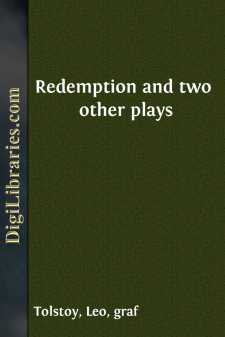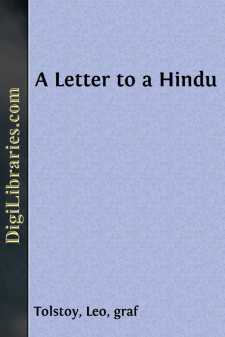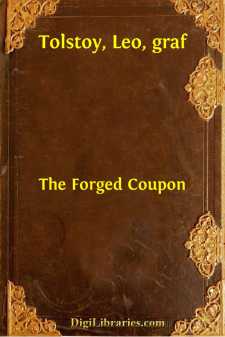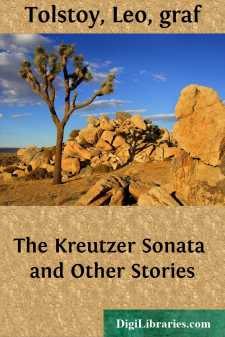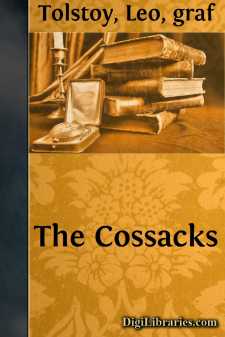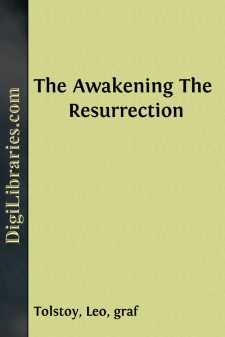Categories
- Antiques & Collectibles 13
- Architecture 36
- Art 48
- Bibles 22
- Biography & Autobiography 816
- Body, Mind & Spirit 145
- Business & Economics 28
- Children's Books 18
- Children's Fiction 14
- Computers 4
- Cooking 94
- Crafts & Hobbies 4
- Drama 346
- Education 58
- Family & Relationships 59
- Fiction 11831
- Foreign Language Study 3
- Games 19
- Gardening 17
- Health & Fitness 34
- History 1378
- House & Home 1
- Humor 147
- Juvenile Fiction 1873
- Juvenile Nonfiction 202
- Language Arts & Disciplines 89
- Law 16
- Literary Collections 686
- Literary Criticism 179
- Mathematics 13
- Medical 41
- Music 40
- Nature 179
- Non-Classifiable 1768
- Performing Arts 7
- Periodicals 1453
- Philosophy 66
- Photography 2
- Poetry 897
- Political Science 203
- Psychology 45
- Reference 154
- Religion 516
- Science 126
- Self-Help 86
- Social Science 82
- Sports & Recreation 34
- Study Aids 3
- Technology & Engineering 59
- Transportation 23
- Travel 463
- True Crime 29
Leo Tolstoy
Leo Tolstoy was a renowned Russian writer best known for his epic novels "War and Peace" and "Anna Karenina," which are considered masterpieces of realist fiction. Born on September 9, 1828, into an aristocratic family, Tolstoy's works delve deeply into the complexities of human experience and social issues. Beyond literature, he was a prominent social reformer and advocate for nonviolent resistance, influencing figures such as Mahatma Gandhi.
Author's Books:
Sort by:
by:
Leo Tolstoy
ACT I The Act takes place in autumn in a large village. The Scene represents PETER'S roomy hut. PETER is sitting on a wooden bench, mending a horse-collar. ANÍSYA and AKOULÍNA are spinning, and singing a part-song. Peter (looking out of the window). The horses have got loose again. If we don't look out they'll be killing the colt. NikÃta! Hey, NikÃta! Is the fellow deaf?...
more...
by:
Leo Tolstoy
INTRODUCTION The letter printed below is a translation of Tolstoy's letter written in Russian in reply to one from the Editor of Free Hindustan. After having passed from hand to hand, this letter at last came into my possession through a friend who asked me, as one much interested in Tolstoy's writings, whether I thought it worth publishing. I at once replied in the affirmative, and told him...
more...
by:
Leo Tolstoy
INTRODUCTION IN an age of materialism like our own the phenomenon of spiritual power is as significant and inspiring as it is rare. No longer associated with the "divine right" of kings, it has survived the downfall of feudal and theocratic systems as a mystic personal emanation in place of a coercive weapon of statecraft. Freed from its ancient shackles of dogma and despotism it eludes...
more...
by:
Leo Tolstoy
CHAPTER I. Travellers left and entered our car at every stopping of the train. Three persons, however, remained, bound, like myself, for the farthest station: a lady neither young nor pretty, smoking cigarettes, with a thin face, a cap on her head, and wearing a semi-masculine outer garment; then her companion, a very loquacious gentleman of about forty years, with baggage entirely new and arranged in...
more...
by:
Leo Tolstoy
Chapter I All is quiet in Moscow. The squeak of wheels is seldom heard in the snow-covered street. There are no lights left in the windows and the street lamps have been extinguished. Only the sound of bells, borne over the city from the church towers, suggests the approach of morning. The streets are deserted. At rare intervals a night-cabman's sledge kneads up the snow and sand in the street as...
more...
by:
Leo Tolstoy
CHAPTER I. All the efforts of several hundred thousand people, crowded in a small space, to disfigure the land on which they lived; all the stone they covered it with to keep it barren; how so diligently every sprouting blade of grass was removed; all the smoke of coal and naphtha; all the cutting down of trees and driving off of cattle could not shut out the spring, even from the city. The sun was...
more...


